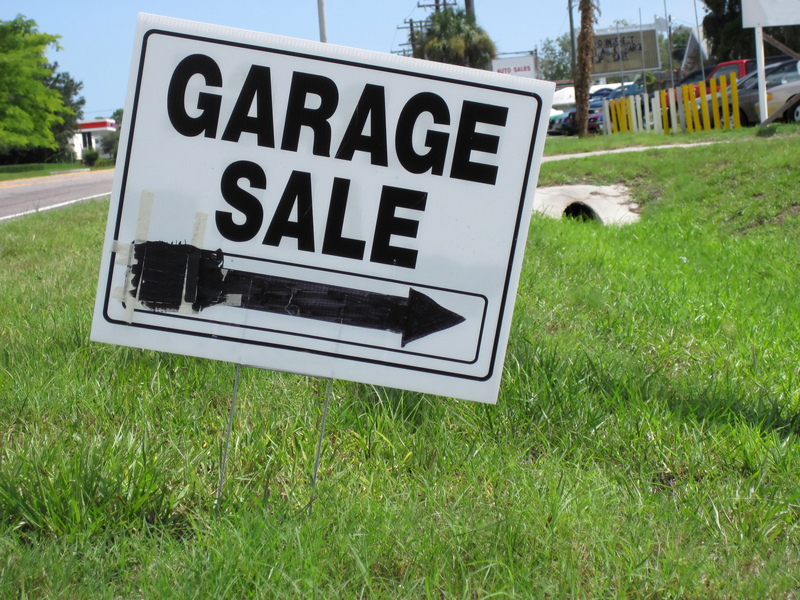Engaging Students with Effective Recycling Practices
Posted on 21/09/2025
Engaging Students with Effective Recycling Practices
In a world increasingly concerned with sustainability, teaching the next generation about environmental responsibility is vital. Recycling in schools offers a hands-on approach for students to participate actively in caring for the environment. However, to truly make an impact, students need to be genuinely engaged in effective recycling practices. This article explores strategic, actionable, and innovative ways to involve students in meaningful recycling initiatives, making the process educational, enjoyable, and impactful.
Why Is Recycling Important for Students?
Before diving into strategies to engage students in recycling programs, it's critical to understand the immense value recycling brings--not only to the planet but to student development itself.
Benefits of Recycling Education
- Environmental awareness: Recycling activities enhance students' understanding of conservation, waste management, and ecosystem health.
- Critical thinking: Sorting waste, learning about different materials, and problem-solving develops analytical skills.
- Personal responsibility: Participation fosters a culture of accountability and good citizenship.
- Teamwork: Group recycling projects teach students to collaborate and communicate.
- Practical skills: Proper recycling habits translate to home and community behavior.

Challenges in Promoting Student Recycling
Many schools launch recycling initiatives but struggle with participation and consistency. Key hurdles include:
- Lack of awareness or understanding about materials that can or cannot be recycled.
- Insufficient infrastructure, such as conveniently placed bins or clear signage.
- Perception issues, with some viewing recycling as boring or inconvenient.
- Competing priorities, with academic or extracurricular pursuits overshadowing eco-initiatives.
To overcome these barriers, it's essential to employ creative and age-appropriate strategies that make effective recycling practices second-nature for students.
Strategies for Engaging Students in Effective Recycling Practices
1. Incorporate Recycling into the Curriculum
One of the most effective ways to promote recycling in schools is to integrate it into classroom content. Teachers can include recycling themes in science, social studies, mathematics, and even art.
- Science classes may explore how recycling reduces pollution or study the decomposition rates of various materials.
- Math lessons can focus on calculating the positive impact of recycling bottles, papers, and cans.
- Social studies projects could investigate how different cultures recycle and manage waste.
- Art assignments might involve creating sculptures or crafts from repurposed materials.
2. Student-Led Recycling Committees
Empowering students to take charge of recycling efforts establishes ownership and excitement. Schools can create student "green teams" responsible for:
- Monitoring waste and recycling bins.
- Organizing educational events and competitions.
- Running awareness campaigns throughout the school year.
- Liaising with local recycling organizations for support and resources.
When students are given responsibility, their peers are more likely to follow suit, leading to a ripple effect throughout the community.
3. Gamify the Recycling Process
Gamification makes recycling fun and engaging. Schools can foster healthy competition and enthusiasm through:
- Classroom or grade-level recycling contests with prizes or recognition for the most recycled material collected.
- Interactive recycling quizzes or scavenger hunts during school events.
- Digital leaderboards highlighting top "recyclers of the month."
Gamification works especially well for elementary and middle school students by turning recycling into a rewarding experience.
4. Create Visible and Accessible Recycling Stations
Placement and visibility of recycling bins dramatically affect participation rates. Ensure bins are:
- Located in high-traffic areas such as cafeterias, hallways, and near exits.
- Clearly labeled with graphics and color-coding to indicate types of recyclables (paper, plastics, metals, organics).
- Regularly monitored and emptied to avoid overflow and contamination.
Adding posters, stickers, and fun facts near bins can guide correct usage and reinforce positive habits.
5. Incorporate Family and Community Involvement
Effective recycling practices extend beyond the classroom. Encourage students to take lessons home by:
- Assigning at-home recycling challenges or family waste audits.
- Sending newsletters with recycling tips and updates on school initiatives.
- Hosting community clean-up days or recycling drives in partnership with local businesses or councils.
Parental involvement magnifies the impact, making recycling a shared value and daily habit.
Innovative Activities for Engaging Students With Recycling
Recycling Relays and School-Wide Events
Organize "Recycling Relay Races" during school assemblies or field days. Students race to sort materials correctly, combining physical activity with learning.
DIY Recycled Art and Fashion Shows
Encourage creativity through art projects using recycled materials. Host a "Trash-to-Treasure" fashion show, allowing students to design wearable art from items like newspapers, bottle caps, and plastic bags.
Waste-Free Challenge Weeks
Designate periodic "Waste-Free Weeks" to challenge everyone to minimize landfill-bound trash. Students can track their progress and reflect on changes in their consumption and disposal habits.
Interactive Recycling Workshops
Invite local environmental groups to run practical workshops on recycling, composting, and upcycling. Hands-on demonstrations help students understand the journey of recyclables and learn new skills.
Educator Tips for Sustained Engagement with Recycling
For sustained involvement with effective student recycling practices, educators can:
- Lead by example. Demonstrate correct recycling behaviors and express genuine enthusiasm for environmental care.
- Recognize progress. Publicly celebrate class or group achievements to maintain motivation.
- Provide clear instructions. Make it easy for students to know what, where, and how to recycle.
- Connect lessons to real-world issues. Discuss local and global environmental challenges to give recycling deeper context and meaning.
Measuring Success of Student Recycling Initiatives
To maximize effectiveness and improve engagement strategies, it's important to track and celebrate progress:
- Set clear, measurable goals for recycling (e.g., pounds of waste diverted, number of items recycled).
- Share periodic updates with students and families to keep everyone involved and aware of the impact.
- Use photos, charts, and stories to make results tangible.
- Solicit feedback from students on what motivates them and what challenges they face.
Case Studies: Success Stories in Student Recycling Engagement
Green Schools Program Initiative
A middle school participating in the Green Schools Program appointed a student recycling ambassador for each grade. Monthly assembly presentations highlighted progress, while friendly competitions forwarded engagement. The result? A 60% increase in recycling rates and widespread adoption of waste-sorting at home.
Eco-Leaders Club at an Urban High School
An urban high school formed an Eco-Leaders club where students led lunchroom waste audits and produced digital campaigns about recycling myths. The initiative developed leadership skills and improved mixed recycling rates by simplifying bin signage and offering regular feedback.

Promoting a Culture of Sustainable Living Beyond the Classroom
While the focus often starts with effective recycling practices in school, the larger goal is to cultivate a lifelong love of sustainability. Students who are well engaged become advocates in their families and communities. Encourage:
- Participation in city or community recycling events.
- Exploration of local recycling centers or eco-friendly businesses.
- Continued research and creative projects on environmental topics.
Conclusion: Shaping Tomorrow's Leaders with Effective Recycling Engagement
Inspiring students to recycle is not just about bins and rules; it's about igniting passion, fostering responsibility, and empowering a generation to protect the planet. Through curriculum integration, student leadership, hands-on activities, family involvement, and data-driven success measurement, educators can make recycling education in schools both effective and exciting.
By implementing these actionable strategies, schools serve as the foundation for lasting change, developing environmental stewards equipped to lead a more sustainable future. The journey begins with one action--and when students are engaged, the possibilities are endless.
Are you ready to inspire your students with the wonders of recycling? Start today and make sustainability a core value in your classroom and beyond!
Latest Posts
Discover Easy Plant Pot Disposal Ideas
Sustain Your Clean Space with These Ongoing Clutter Control Strategies
Innovative Approaches to Decrease Household Waste
Transform Your Space: Pre-Party Cleaning Checklist for a Welcoming Atmosphere
Clear Your Clutter, Clear Your Mind - Stress Relief Through Organization

 020 3795 6999
020 3795 6999 020 3795 6999
020 3795 6999




 House clearance
House clearance Rubbish collection
Rubbish collection Here at Rubbish Junk we give you the unique opportunity to keep your home free of clutter at prices that will constantly please you. Other domestic clearance companies in London might be...
Here at Rubbish Junk we give you the unique opportunity to keep your home free of clutter at prices that will constantly please you. Other domestic clearance companies in London might be... Rubbish Junk knows what to do to keep your home rubbish-free. When you are facing a situation that requires clearance services,...
Rubbish Junk knows what to do to keep your home rubbish-free. When you are facing a situation that requires clearance services,...



